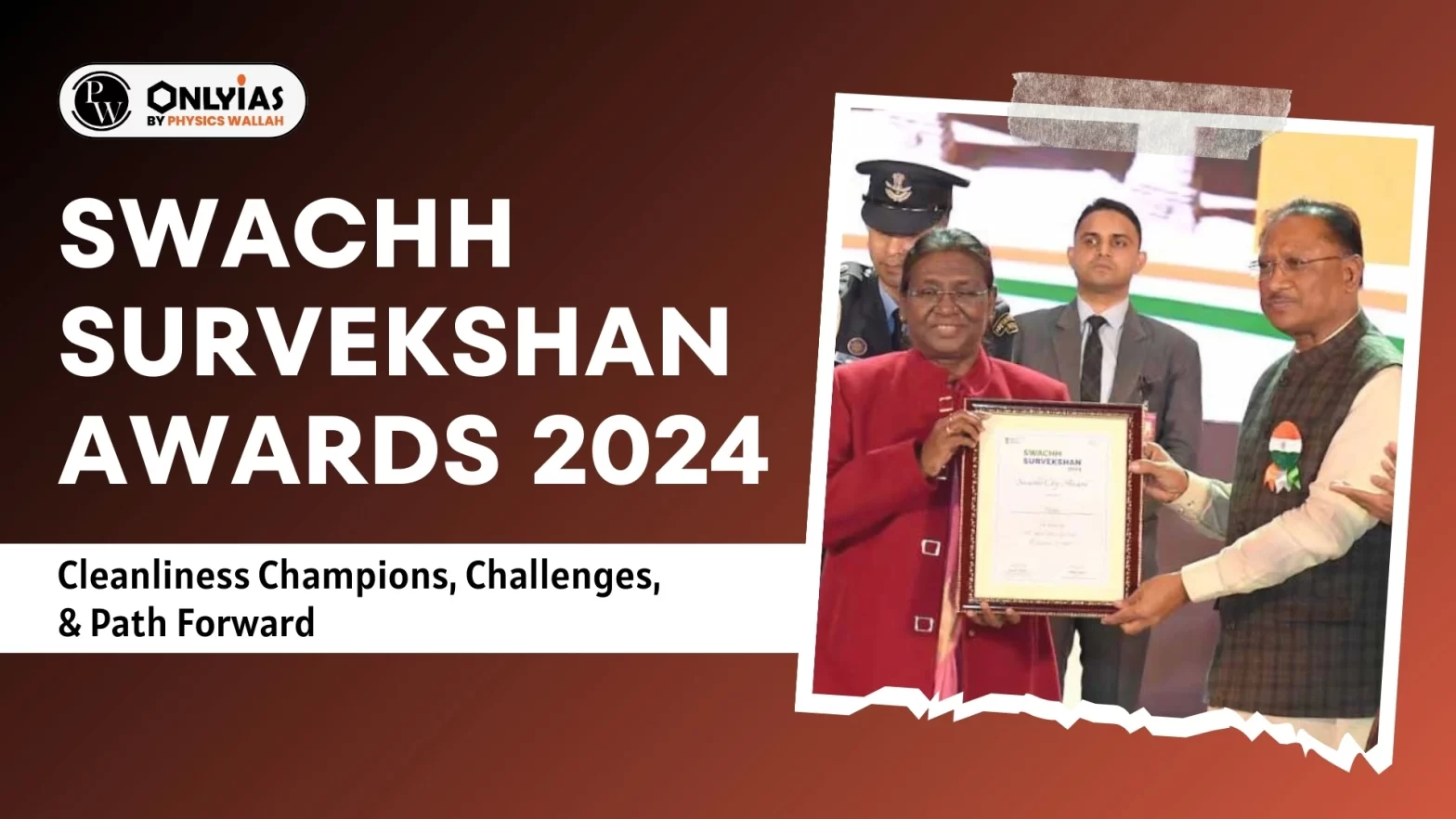![]() 13 Jan 2024
13 Jan 2024

Context: This editorial is based on the news “Numbers game: On the Swachh Survekshan awards” which was published in The hindu. Recently, the Centre has announced the Swachh Survekshan Awards for the eighth year running.
| Relevancy for Prelims: Swachh Survekshan Awards, Criteria for Cleanliness, Survey Categories, Policy Intervention.
Relevancy for Mains: Urban Governance and Development, Sustainable Sanitation Policies, Public Health and Hygiene, Local Governance and Participation, Social and Economic Disparities & Environmental Impact, Role of Data in Governance |
|---|
|
Must Read |
|
| NCERT Notes For UPSC | UPSC Daily Current Affairs |
| UPSC Blogs | UPSC Daily Editorials |
<div class="new-fform">
</div>